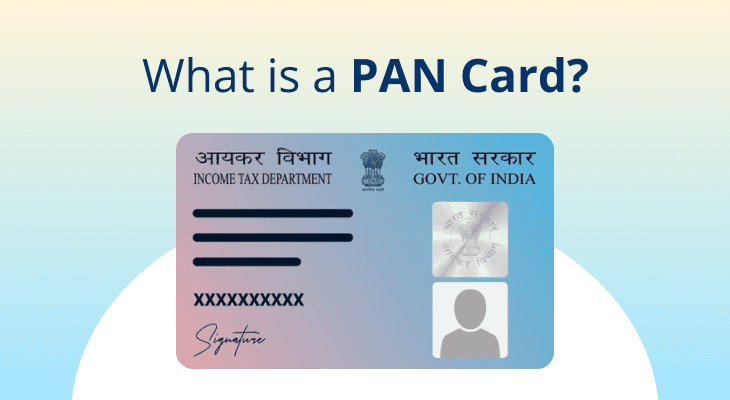
Table of content
- Introduction to Income Tax Filing for Minors
- When is it Necessary for a Minor to File Income Tax Returns?
- Instances When a Minor Must File Taxes:
- Income Sources That May Require Filing for Minors
- Documents Needed for Filing Income Tax Returns for Minors
- Step-by-Step Process for Filing Income Tax Returns for Minors
- Tax Benefits and Exemptions Available to Minors
- Common Mistakes to Avoid When Filing for Minors
How to File Income Tax Returns for Minors? A Complete Guide
Introduction to Income Tax Filing for Minors
As a parent or guardian, you might assume that minors have no tax obligations. However, if your child earns income, the question of whether they need to file income tax returns arises. Understanding the rules governing income tax for minors helps ensure compliance with tax laws while maximizing available benefits and exemptions
When is it Necessary for a Minor to File Income Tax Returns?
A minor is generally not required to file income tax returns unless their income exceeds a specified threshold. However, a minor’s income may arise from sources such as investments, part-time work, or gifts, which may require tax filing.
Instances When a Minor Must File Taxes:
- If the minor’s income exceeds the basic exemption limit (Rs. 2,50,000 for FY 2023-24).
- If the minor earns taxable income from investments, interest, or dividends that is not clubbed with the parent’s income under Section 10(32).
- If the minor earns income from their own skill, talent, or business, which is not clubbed with the parent’s income.
- If the minor’s income is subject to Tax Deducted at Source (TDS), and they need to claim a refund.
Who is Responsible for Filing Tax Returns for a Minor?
In most cases, a minor’s income is clubbed with that of their parent under Section 10(32) of the Income Tax Act. The parent with the higher income must include the minor’s income in their tax return, except in the following cases:
- The minor earns income from special skills, talent, or business (e.g., child actors, social media influencers, child artists, etc.).
- The minor receives income under a settlement or inheritance.
In such cases, the minor must file their own tax return.
Income Sources That May Require Filing for Minors
Minors can earn income from various sources that may necessitate tax filing:
Income Source | Tax Treatment |
|---|---|
Fixed Deposit Interest | Clubbed with parent’s income unless earned from the minor’s skills |
Stock Market Investments | Taxable as per capital gains tax rules |
Social Media/Influencer Earnings | Treated as business/professional income, requires separate filing |
Scholarships or Grants | Exempt from tax |
Gifts from Relatives | Exempt up to Rs. 50,000 annually |
Rental Income | Taxable as per applicable slab |
Documents Needed for Filing Income Tax Returns for Minors
Before filing, ensure you have the following documents:
- PAN card of the minor (mandatory if earning taxable income)
- Aadhaar card for verification
- Income proof (bank statements, investment statements, Form 16 if applicable)
- Parent’s PAN card (if income is to be clubbed)
- TDS certificates (Form 16A) for tax deductions
- Interest and dividend statements
Step-by-Step Process for Filing Income Tax Returns for Minors
Step 1: Determine the Type of Filing Required
- If the minor’s income is clubbed with the parent’s, file it under the parent’s ITR.
- If the minor is filing independently, proceed with an individual ITR filing.
Step 2: Register on the Income Tax Portal
- Visit www.incometax.gov.in.
- If the minor does not have a PAN, apply for one first.
- Create a login using the minor’s PAN (if filing independently).
Step 3: Select the Appropriate ITR Form
- ITR-1 (Sahaj): For salaried income or interest income.
- ITR-2: For capital gains or foreign income.
- ITR-3: If the minor has business income (e.g., influencer earnings, child actors).
Step 4: Fill in the Income Details
- Enter income from all sources.
- If clubbing income with the parent, include it under 'Income from Other Sources'.
Step 5: Claim Deductions and Exemptions
- Section 10(32): Exempts Rs. 1,500 per minor child per year from clubbed income.
- Section 80C: Claim deductions on minor’s investments in PPF, Sukanya Samriddhi, etc.
Step 6: Compute Tax Liability and Pay Taxes (if applicable)
- Use the online tax calculator to check tax liability.
- If any tax is due, pay through Challan 280 before submission.
Step 7: Verify and Submit the ITR
- E-Verify using Aadhaar OTP, net banking, or bank account validation.
- Submit the return before the deadline (typically July 31st of the assessment year).
Tax Benefits and Exemptions Available to Minors
Minors are eligible for tax benefits that help reduce liability:
- Section 10(32): Rs. 1,500 exemption on clubbed income.
- Scholarship income: Fully exempt.
- Agricultural income: Exempt but must be reported.
- Investment in Tax-Free Instruments: PPF, Sukanya Samriddhi, and Tax-Free Bonds do not attract tax.
Common Mistakes to Avoid When Filing for Minors
- Ignoring PAN Requirements: PAN is necessary for high-income minors.
- Not Clubbing Income Properly: Ensure correct parent’s income is chosen for clubbing.
- Missing Deductions: Parents often forget to claim the Rs. 1,500 exemption under Section 10(32).
- Not Claiming TDS Refunds: If banks deduct TDS on minor’s FD interest, file for refunds.
- Incorrect ITR Form Selection: Business income requires ITR-3, while interest income can go in ITR-1.
Conclusion
To conclude, filing income tax returns for minors may seem complex, but understanding the tax implications, clubbing provisions, and deductions simplifies the process. Ensuring compliance while optimizing tax benefits is crucial as a parent or guardian. By following this guide, you can handle minor tax filings hassle-free while securing their financial future.
If you’re unsure whether your child’s income needs to be filed separately or clubbed, or for in case of other queries you could consult a tax expert or visit the Income Tax Department’s website for more details.
An Income Tax Calculator helps you estimate how much tax you need to pay based on your income, deductions, and exemptions. Use our Income Tax Calculator to understand your tax liability better and plan smarter to save more.


